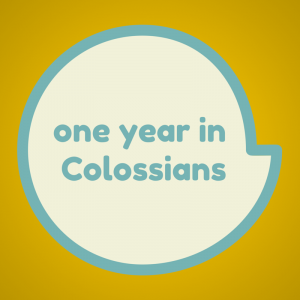 What is redemption, really? Our salvation? How should we think about it? Is there a wrong way to think about it?
What is redemption, really? Our salvation? How should we think about it? Is there a wrong way to think about it?
Salvation: A Healing or a Pardon?
I’ve been listening to some great sermons lately on my looong, once-a-week commute, that have mentioned the idea that the Church in the West perhaps over-emphasizes the idea of salvation as a legal transaction. That’s always been my understanding of it—the wages of sin is death, Christ paid the debt I could not pay, etc.
But this pastor (whom I appreciate and respect, and is probably one of my favorite preachers to listen to) suggests that the Western Church thinks of salvation as something that happens in a courtroom more than something that happens in a hospital. Jesus, after all, said He came for the sick. He draws out plenty of other examples from scripture, and tells us that in a lot of Eastern traditions salvation is primarily thought of as being healed of a disease—rather than being pardoned from a crime.
He admits, of course, that both are true. And I do think that it’s helpful to remove whatever legality we can from salvation—especially in our very self-made, works-based culture—and remember that sin is like a disease. It definitely inspires more compassion in evangelism to think that an unsaved person is spiritually ill, rather than a spiritual criminal.
Penal Substitution
I’ve also been overhearing (because I’m just over, lately, unfruitful theological debates, so I rarely wade into those waters) conversations (to put it mildly sometimes) over the concept of “penal substitution.”
Penal substitutionary atonement refers to the doctrine that Christ died on the cross as a substitute for sinners. God imputed the guilt of our sins to Christ, and he, in our place, bore the punishment that we deserve. [Theopedia]
It’s a very legalistic understanding of salvation, again. Critics like the term, “divine child abuse” (forgetting—perhaps—that Christ and the Father are One).
The Apostle Paul (and John MacArthur) on Redemption
And then John MacArthur and I were talking about Colossians 1 this morning. Verse 14 reads,
… in whom we have redemption, the forgiveness of sins.
John points out that,
 Apolutrosis (redemption) is one of the magnificent New Testament words expressing a blessed aspect of the work of Christ on our behalf. … It means “to deliver by payment of a ransom,” and was used to speak of freeing slaves from bondage.
Apolutrosis (redemption) is one of the magnificent New Testament words expressing a blessed aspect of the work of Christ on our behalf. … It means “to deliver by payment of a ransom,” and was used to speak of freeing slaves from bondage.
And it’s not that I don’t trust John, but I wanted to be sure. He’s right. It’s #629 in Strong’s Concordance. He goes on,
The meaning of apolutrosis is expressed in our English word emancipation. The Septuagint uses a related word to speak of Israel’s deliverance from bondage in Egypt.
I like the idea of salvation as healing, of sin as a disease and Christ as our Healer. It’s completely accurate, and scripture definitely bears it witness. And I’m opposed to all forms of child abuse.
But Paul, in writing to the Colossians, seems pretty convinced that the blood of Jesus, poured out through His death on the cross, purchased our freedom from the kingdom/authority of darkness and death. And that’s pretty fantastic too.
